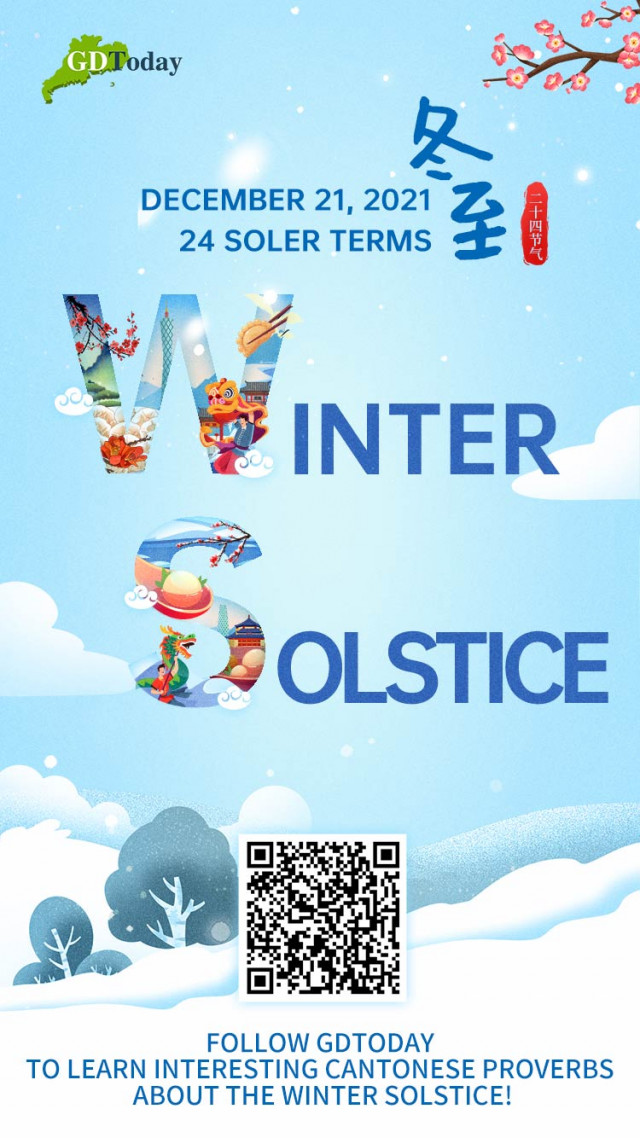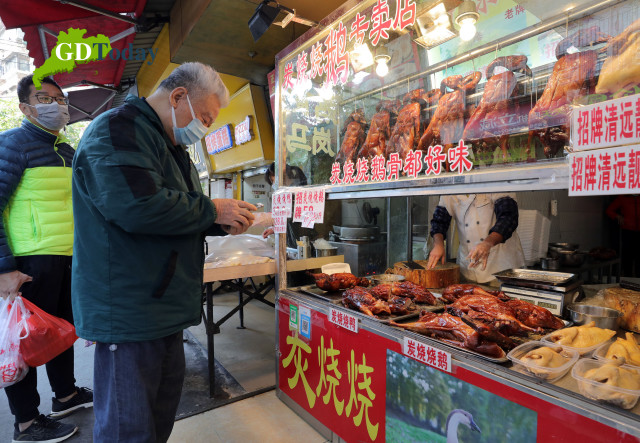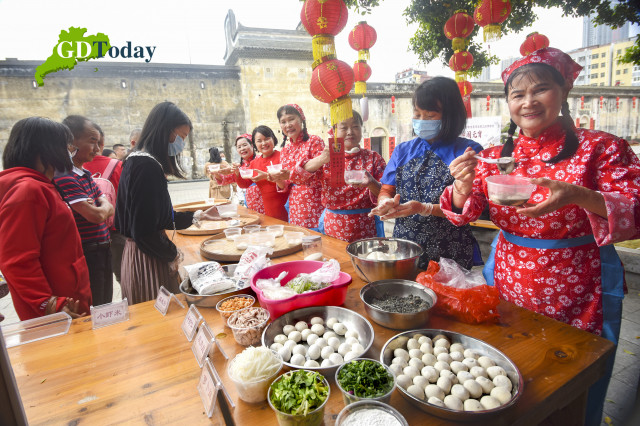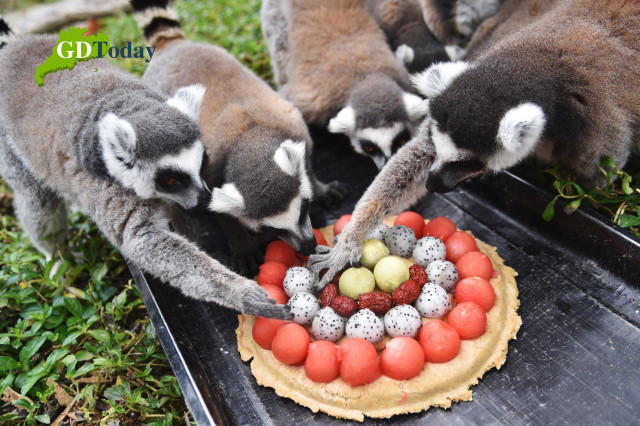The traditional Chinese lunar calendar divides the year into 24 solar terms. Winter Solstice, (Chinese: 冬至), the 22nd solar term of the year, begins on today (December 21) this year and ends on January 1, 2022.
There are many traditional but interesting Cantonese proverbs about the winter solstice, showcasing local customs and people's profound wisdom of life. Come challenge yourself to show your excellent pronunciation with your Chinese friends!

1. Fei Dong Shou Nian (肥冬瘦年)
The proverb Fei Dong Shou Nian, literally meaning fat winter slim new year, stresses that Cantonese people usually eat a big and substantial meal on the Winter Solstice, but eat lightly on the Chinese New Year. This proverb reveals that in Guangdong, people attach great importance to Winter Solstice. There is even a saying in Guangdong's Chaoshan area—Winter solstice is prior to the Spring Festival.

2. Shi Le Dong Jie Yuan Duo Yi Sui (食了冬节圆多一岁)
Dong Jie Yuan refers to tangyuan (glutinous rice balls), a traditional Chinese dessert made of glutinous rice flour. Cantonese like to eat a bowl of steaming sweet dumpling on this day. They usually regard the winter solstice as the beginning of a new year. Therefore the proverb means that Cantonese will grow one year older after eating the glutinous rice balls.

3. Dong Ri Ye, Luo Luo Chang, Tian Wan Wei Zhu Tian Wu Guang (冬节夜,啰啰长,甜丸未煮天唔光。)
Tian Wan is another name for tangyuan. This proverb means that the night of Winter Solstice is very long, and the sweet dumplings have not yet been cooked.
In the past, children from Guangdong have always had a strong desire for sweet food. They often ask their mothers in the small hours of the Winter Solstice—"Is it dawn? I want to eat sweet dumplings." However, the Winter Solstice is the day with the shortest daylight and longest night of the year in the northern hemisphere. Thus their mothers would tell them "It's not dawn yet".

4. Dong Zhi Jiu, Liu Dao Ming Nian Jiu Yue Jiu (冬至酒,留到明年九月九。)
This proverb means that the wine made on the Winter Solstice can be reserved until the Double Ninth Festival (the ninth day of the ninth lunar month), a traditional Chinese holiday to honor and respect elders, next year.
Cantonese believe that the cold and mellow water on the Winter Solstice is most suitable for making wine. Moreover, because of the cold weather, they trust that the wine produced on this day will not go bad for a long time. For Cantonese people, drinking a glass of wine made during the Winter Solstice last year on the Double Ninth Festival is an important way of health preservation.
Author: Ariel
Editor: Wing, Monica, Jerry
















